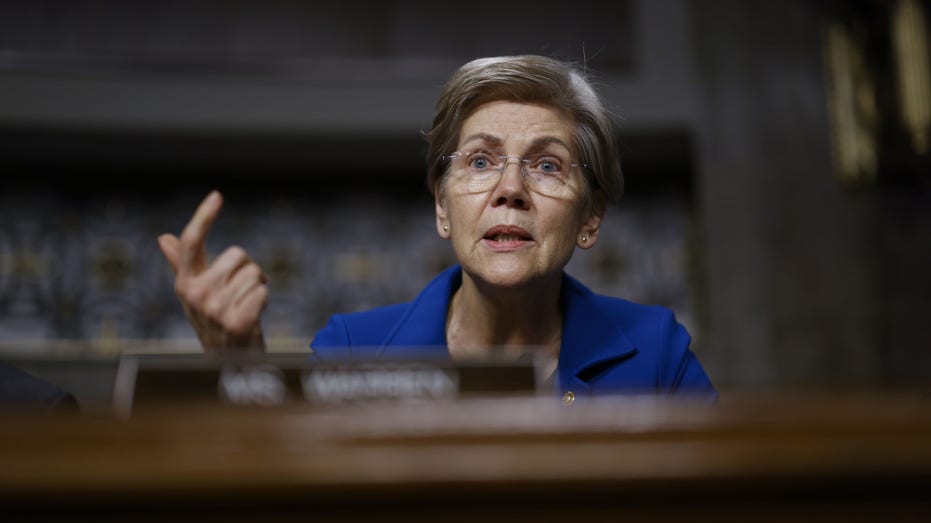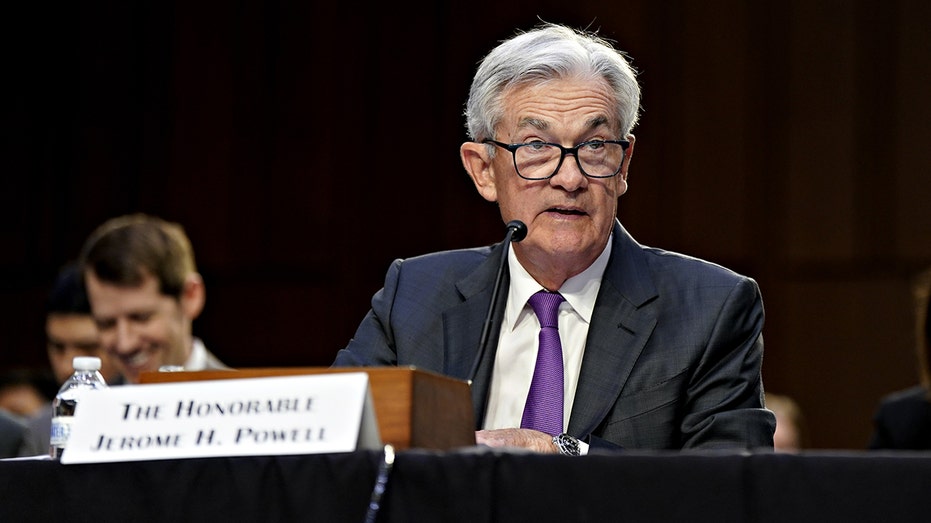Lawmakers mull raising FDIC deposit insurance cap in wake of SVB bank run
Congress last increased the FDIC limit following the 2008 financial crisis, but experts are split on whether it should be hiked following SVB's collapse
If Fed didnt act on SVB insolvency, serious problems would have arisen: Nellie Liang
Fox News senior congressional correspondent Chad Pergram says a final report on the Silicon Valley Bank collapse will come May 1.
Federal lawmakers charged with overseeing the U.S. banking industry say it may be time to take a look at hiking the deposit amount the Federal Deposit Insurance Corporation (FDIC) covers, after a panic by uninsured depositors fueled a run on Silicon Valley Bank earlier this month.
But regulatory experts are divided on whether raising the $250,000 federal insurance cap on deposits is a good idea. Some say another increase is long overdue,. Others warn it could incentivize further mismanagement at financial institutions.
"It's important that we actually change the law, make it clear that FDIC insurance is going to cover higher than it did so that small businesses, for example, can put payroll in banks and know it'll be protected," Sen. Elizabeth Warren told FOX Business on March 22.

Senator Elizabeth Warren, a Democrat from Massachusetts, speaks during a Senate Banking, Housing, and Urban Affairs Committee hearing on Wednesday, Dec. 14, 2022. Warren is in favor of raising the FDIC insurance limit on bank deposits. (Ting Shen/Bloomberg via Getty Images / Getty Images)
The Democrat from Massachusetts, who sits on the Senate Banking Committee, said there would be negotiations in Congress about what the amount should be.
"Is it $2 million? Is it $5 million?" she asked rhetorically.
SENS. RICK SCOTT, ELIZABETH WARREN PROPOSE TO REPLACE THE FED'S INTERNAL WATCHDOG
Warren emphasized that there has to be a cap, so people cannot make a million dollar deposit and "get a special deal from the bank and still get backed up by taxpayers," then "get their money back if the bank fails."
Republican Rep. Patrick McHenry, who chairs the House Financial Services Committee, told CBS' "Face the Nation" last week that Warren's suggestion to lift the FDIC cap (which she floated as high as $10 million to the outlet), was the first he had heard of such proposal, but signaled raising the limits is on the table.

Representative Patrick McHenry, a Republican of North Carolina and ranking member of the House Financial Services Committee, speaks during a hearing in Washington, D.C., U.S., on Thursday, June 23, 2022. McHenry says he will look at whether the FDIC (Photographer: Eric Lee/Bloomberg via Getty Images / Getty Images)
"What I will do though, legislatively, and in an oversight function is to determine whether or not we need to address the FDIC deposit level," McHenry said. "We did it after the last financial crisis raising from $100,000 to $250,000. We had a temporary program, post-financial crisis to support deposits, to ensure that folks had confidence in their local bank."
"What I want to know is the trade-off though," he continued. "The moral hazard of having more risk-taking in the financial sector."
HOW THE BANKING CRISIS COULD HAMMER SMALL BUSINESSES
SVB was unique in that it catered largely to the venture capital community, and upwards of 90% of its depositors were uninsured — far higher than most banks. Federal Reserve Chair Jerome Powell blamed the bank's failure on poor management.

Jerome Powell, chairman of the US Federal Reserve, speaks during a Senate Banking, Housing, and Urban Affairs Committee hearing in Washington, DC, US, on Tuesday, March 7, 2023. Powell blamed the failure of Silicon Valley Bank on mismanagement. (Photographer: Al Drago/Bloomberg via Getty Images / Getty Images)
The Fed, U.S. Treasury and FDIC responded to SVB's collapse by guaranteeing all the funds of the banks' depositors.
SILICON VALLEY BANK'S RAPID WITHDRAWALS, MANAGEMENT MISSTEPS CREATED PERFECT STORM
Dr. Angela Vossmeyer, associate professor of economics at Claremont McKenna College and faculty research fellow at the National Bureau of Economic Research, says the FDIC's pledge to make good on 100% of SVB's depositors put regulators in a tricky spot if more institutions fail. The agency restores depositors using a fund that other banks pay into, so as those payouts grow, so does the price paid by everyday Americans.
"Banks are paying the costs, but eventually costs get rolled on to customers," she said. "So certainly, if they keep drawing down this fund more — raising the cost for banks to pay into the FDIC — it gets costly for everyone."

An FDIC sign is posted on a window at a Silicon Valley Bank branch in Wellesley, Mass., on Saturday, March 11, 2023. Federal lawmakers are considering raising the FDIC insurance deposit limit for the first time in over a decade. (AP Photo/Peter Morgan / AP Newsroom)
Mark Treichel, who spent 33 years at the National Credit Union Association and served as executive director of the agency, says Congress has little choice but consider raising the FDIC deposit limit in the wake of the SVB failure and other institutions in recent weeks.
HOW SAFE ARE CREDIT UNIONS AMID BANK TURMOIL?
"I think they're going to have to look at it — it's time," Treichel told FOX Business. "If you just benchmark it to inflation, which has been taking off recently, you could argue that it needs to go up. And there's no doubt that the politicians and the people who they represent are going to be looking at this thinking, ‘OK, how can we do better relative to providing broader insurance or more insurance?'"

The Capitol is seen in Washington, D.C. (AP Photo/J. Scott Applewhite / AP Images)
Economist Douglas Holtz-Eakin, the president of the American Action Forum and a former director of the Congressional Budget Office, says SVB was an isolated incident and moves by regulators to cover all the bank's deposits threw out the rules and sowed confusion.
"I think they shouldn't have done it … it's just a mistake," Holtz-Eakin told FOX Business. He says now that regulators have essentially provided "unlimited insurance," lawmakers "should be pretty prudent about raising or extending the guarantee any further."
"At some ironic level, raising the cap is creating more systemic risk," he explained. "And if that's what you're worried about, why create more?"
GET FOX BUSINESS ON THE GO BY CLICKING HERE
If uninsured depositors hadn't left Silicon Valley Bank, the regulators would have continued missing problems: Mark Calabria
Cato Institute senior advisor Mark Calabria gives his take on the fallout of SVB's collapse on 'Making Money.'






















